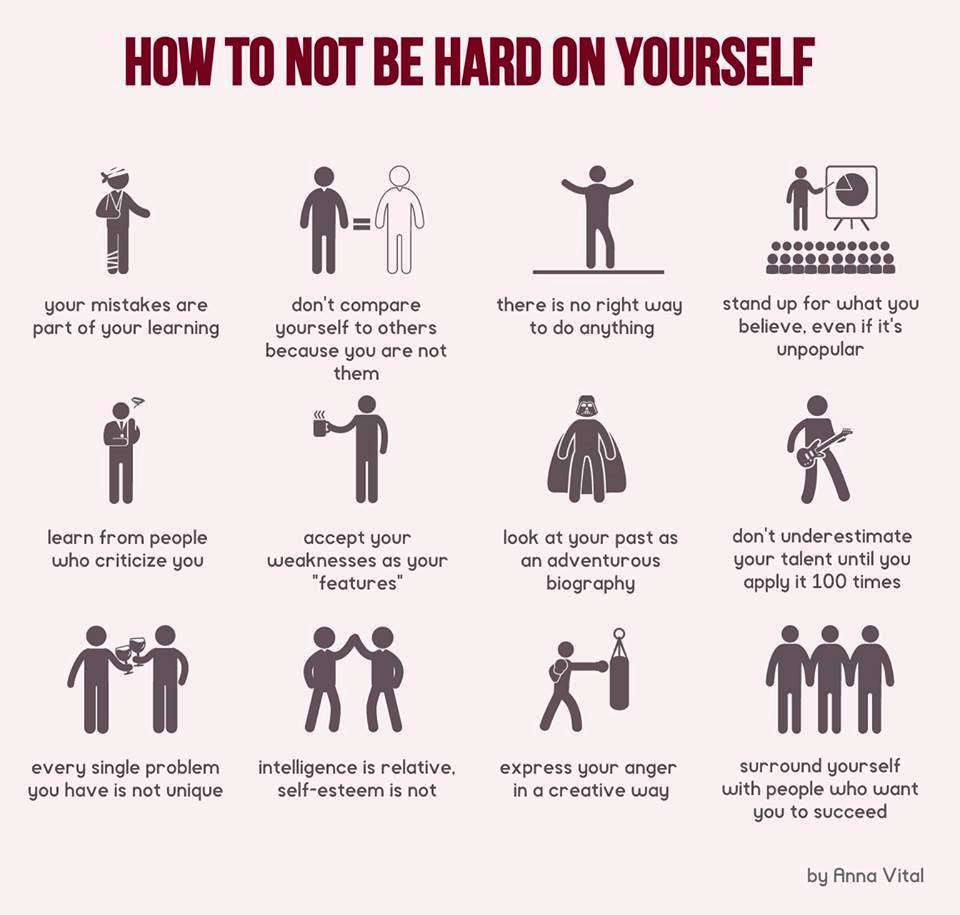The Power of Self-Compassion
Contributed by: Kate Heetland
“Self-compassion entails being warm and understanding toward ourselves when we suffer, fail, or feel inadequate, rather than ignoring our pain or flagellating ourselves with self-criticism.”
Many people are moving beyond the idea of self-esteem and embracing the concept of self-compassion. Where self-esteem continually builds a person up, self-compassion allows our shortcomings. Recognizing that no one, including ourselves, is perfect, we can be kinder when we inevitably fail.
What is self-compassion? Dr. Kristin Neff of the University of Texas describes it as the following:
“…Having compassion for yourself means that you honor and accept your humanness. Things will not always go the way you want them to. You will encounter frustrations, losses will occur, you will make mistakes, bump up against your limitations, fall short of your ideals. This is the human condition, a reality shared by all of us. The more you open your heart to this reality instead of constantly fighting against it, the more you will be able to feel compassion for yourself and all your fellow humans in the experience of life.”
She goes on to identify three components of this approach of self-love:
1. Self-kindness vs. self-judgement
2. Common humanity vs. isolation
3. Mindfulness vs. over-identification
There is a large difference between self-compassion and the better known self-esteem. Where self-esteem depends on ‘wins’ and recognition, self-compassion accounts for the highs and lows of life. Where self-esteem depends on external circumstances, self-compassion depends wholly on what’s inside. Self-esteem is a rating system, a comparison.
“This suggests that self-compassionate people are better able to accept who they are regardless of the degree of praise they receive from others. Self-esteem, on the other hand, only thrives when the reviews are good and may lead to evasive and counterproductive tactics when there’s a possibility of facing unpleasant truths about oneself.”
Self-compassion is necessary in order to show compassion to those around you. In the video below, Dr. Brene Brown of the University of Houston, describes the connection between vulnerability and the ability to help others from a place of love instead of judgement.
“Showing compassion to others can’t actually be achieved unless you have compassion for yourself.”
Curious on tips to increase your self-compassion? A Forbes article suggests the following:
1. Notice your self-talk – recognize that everyone makes mistakes.
2. Write yourself a letter – talk to yourself as you would a friend going through something tough
3. Develop a self-compassion phrase – a lot of us at GEN enjoy ‘Peace Begins With Me’
4. Make a daily gratitude list – what are five things that you are grateful for?
Self-compassion is necessary and helpful to women of all ages. How can we communicate its importance to the young girls in our lives? First, remember that what young people see their role models saying becomes their own self-talk. For our benefit as well as theirs, adults must demonstrate positive self-talk and self-care.
Girlsleadership.org says this can be accomplished in Neff’s three short steps of (1) self-kindness, (2) common humanity, and (3) mindfulness.
Some other ways to foster self-compassion in children include:
Showing empathy and sympathy for their emotions
Encourage them to name their emotions
Does that make you feel angry?
How do you feel about that?
Discuss actions that help deal with emotions like a walk, hug, journaling
Criticize behavior, but not the person
That was hurtful.
That was brilliant!
Compassionate discipline
GEN is continuing to explore creative ways to discuss these topics in all of our programming, ranging from clubGEN for elementary/middle school girls to our 180 group for high schoolers. Encouraging self-love and positive self-talk have always been a focal point of ours. We create stop-motion videos addressing self-talk and affirmations. One activity that is used in the younger groups is a self-esteem portrait. Students draw themselves and write 5-10 things that they admire about themselves, then pass it around the group so that each girl writes on everyone’s portrait. In this activity, GEN girls practice self-love and receive positive affirmations from their peers.
In all ages, we see a shift in how the girls relate to themselves and others. Not only is self-compassion necessary for building up these amazing young women, but it transfers into self-respect, healthy relationships, and positive decision making. As the weeks go on, students express concern for others – ‘Are you doing ok? You missed group last week.’ – and share/support experiences that members of group are facing.
Additionally, summer GENterns made a video that will be used in our curriculums for clubGEN and 180 beginning this fall.
Earlier in the summer, we hosted young girls at campGEN for three different weeks. One of the themes was Calm, Cool, and Creative. School of Life Design partnered with GEN to make a beautiful positive thinking workbook. One of the activities under ‘letting go’ is called ‘awareness turns pain into peace’.
“Once you notice that you feel bad, just admit it. Own it. “I’ve noticed that I feel cranky, and that’s ok.” That’s all you have to do to release your suffering. Embrace the negative and accept it for what it is.”
Coming up on October 6th, the GENthusiast society is hosting GENthusiast Society Salon: Self-Compassion. GEN’s Program Director, Caroline Crawford, will lead a workshop on how to practice self-compassion for yourself, as well as how to model it for- and foster it in- girls. We hope to support you in being your own best friend, help foster personal and professional connections, and provide a safe space filled with girls empowerment spirit.
GENthusiast Society is a giving circle and shared-interest group for supporters of Girls Empowerment Network. GENthusiast is an opportunity to make sure girls have the support and guidance you wish you’d had at their age, while gaining your own space to connect with other with other girl-advocates, and help us continue creating bigger change in the community.
Questions? Check out Dr. Neff’s TEDx talk and click on the images below for more informational webpages on self-care through self-compassion:


